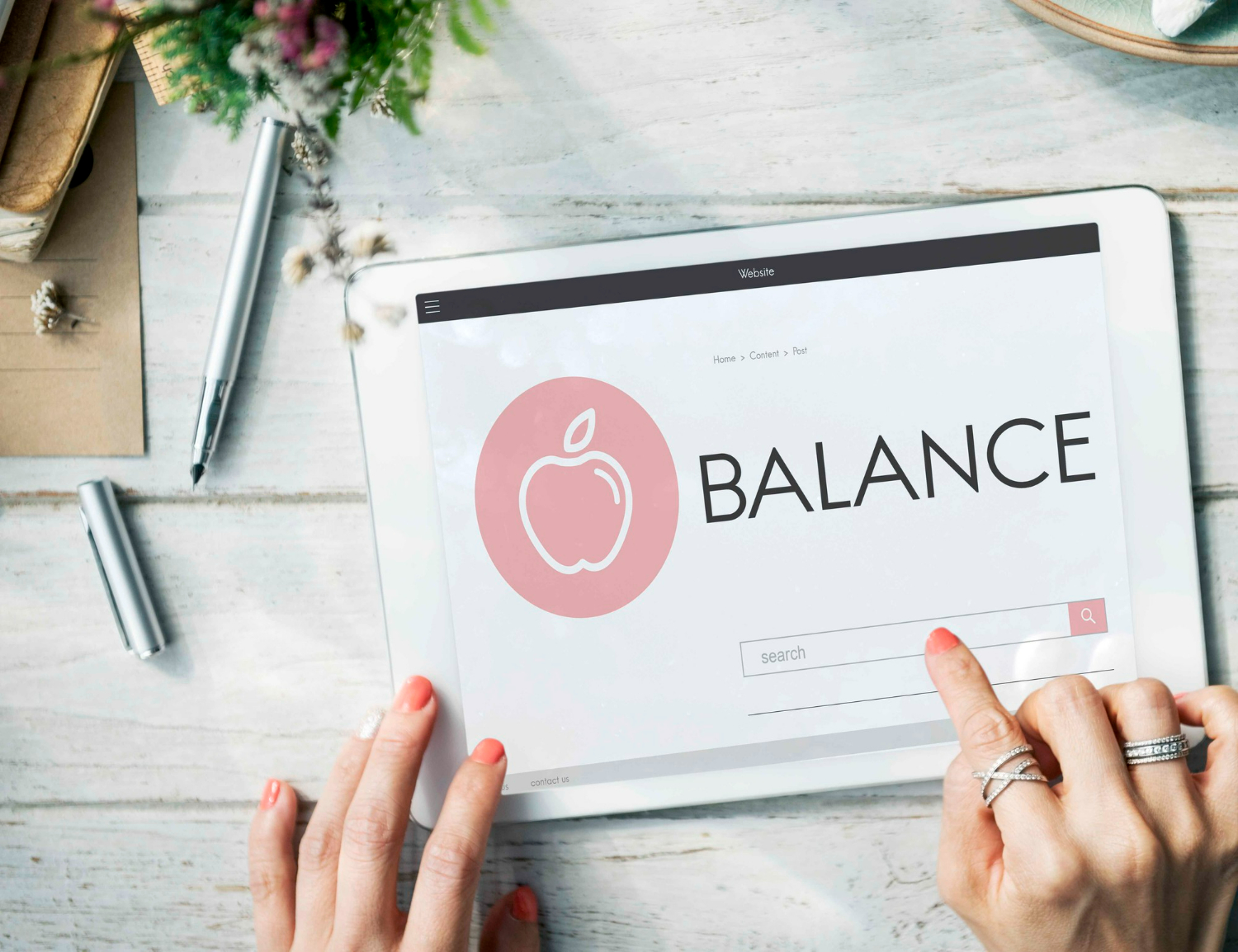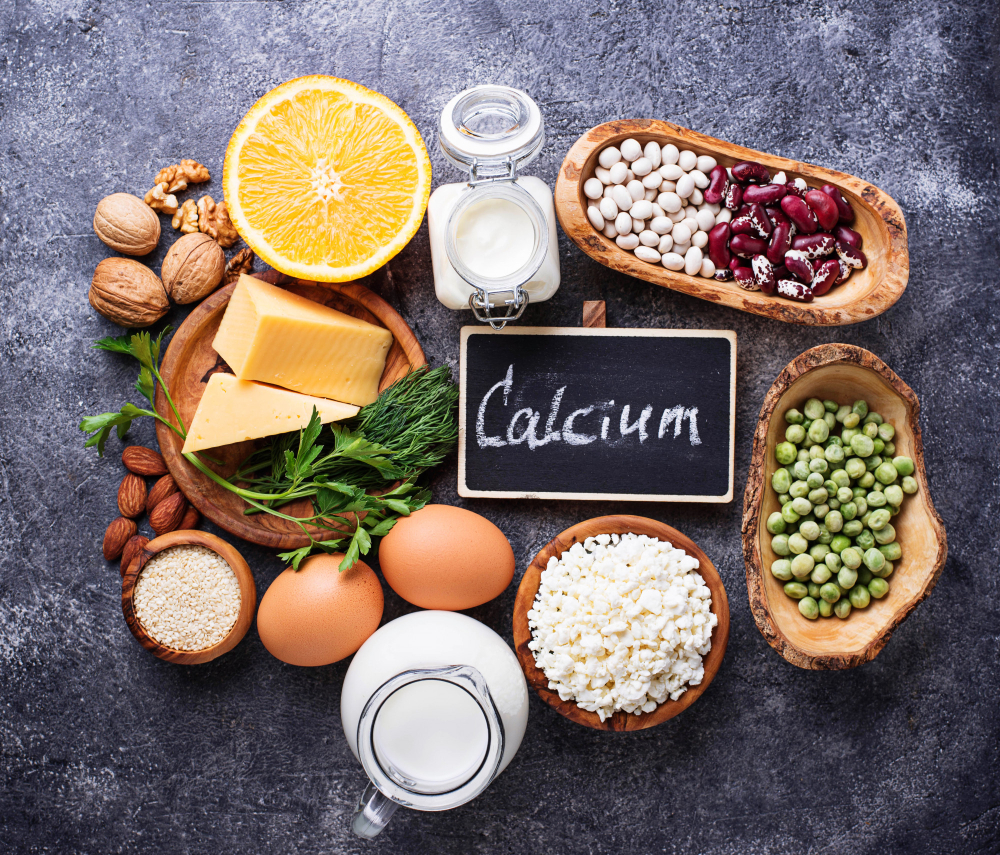How Can Sleeping Well Do Wonders for You?
Pressures from school or work, electronic devices, unhealthy lifestyle, etc, are all common factors that make sleeping well something of a luxury nowadays. Not being able to maintain good sleeps also cause **dangerous diseases** in the long-terms. With awareness of the role **good sleeps** play in our well-being and how to maintain them, you will reap all **the benefits sleeping well bring.**
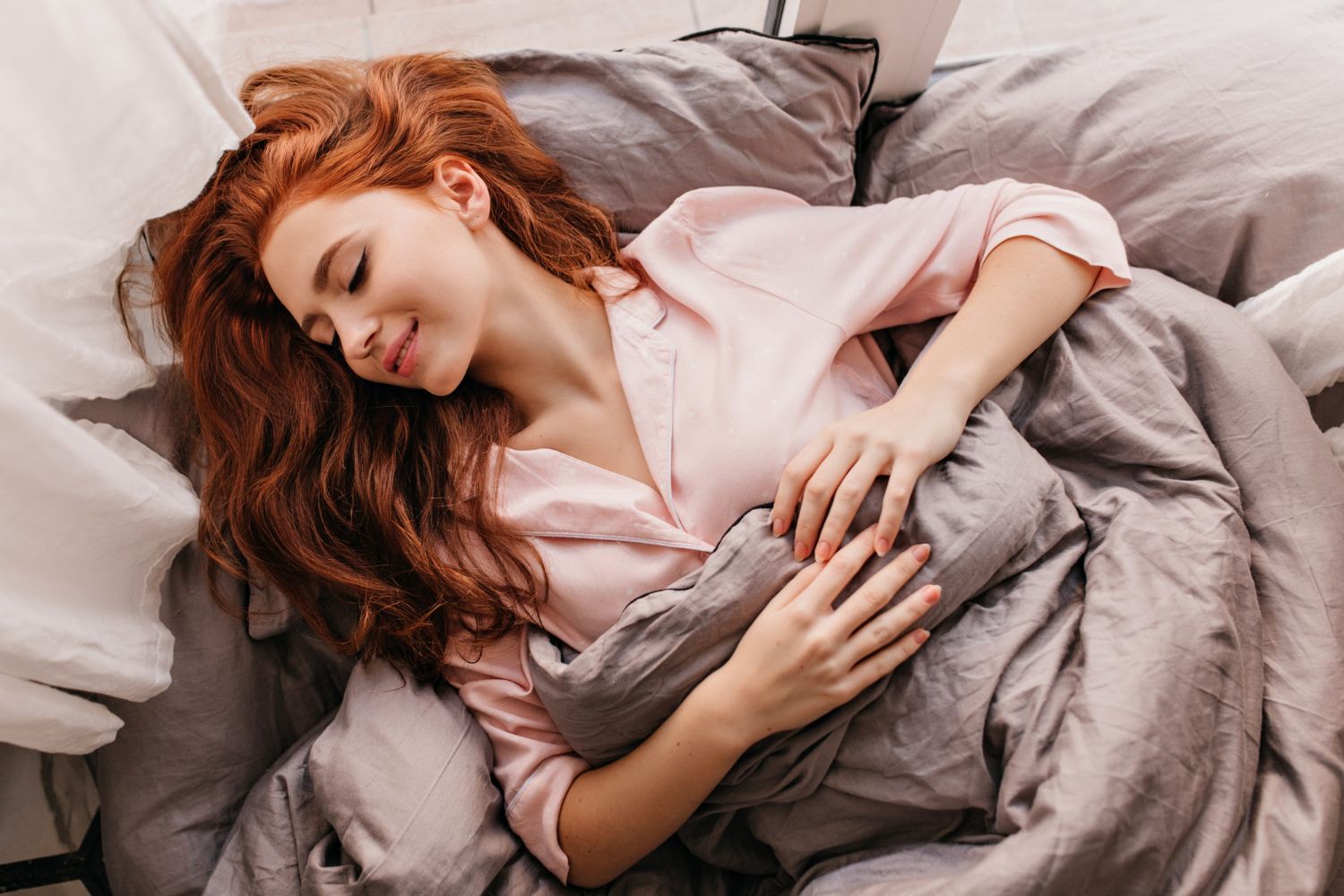
Table of Contents:
- Sleeping difficulty – the disease of our time
- The harm of lacking good sleeps
- Ways to improve quality of your sleeps
1. Sleeping difficulty – the “disease” of our time
In the US, 50-70 millions people report having chronic sleeping difficulty which causes them many inconveniences in daily life and dangerous diseases. (1)
In the UK, 1 out of every 3 people have some symptoms of insomnia. Insomnia result in a yearly economic loss of average £30 billions. (2)
In Ho Chi Minh City, Vietnam, up to 33% of the population experience symptoms of insomnia. About 30% of these symptoms are associated with mental disorders. (3)
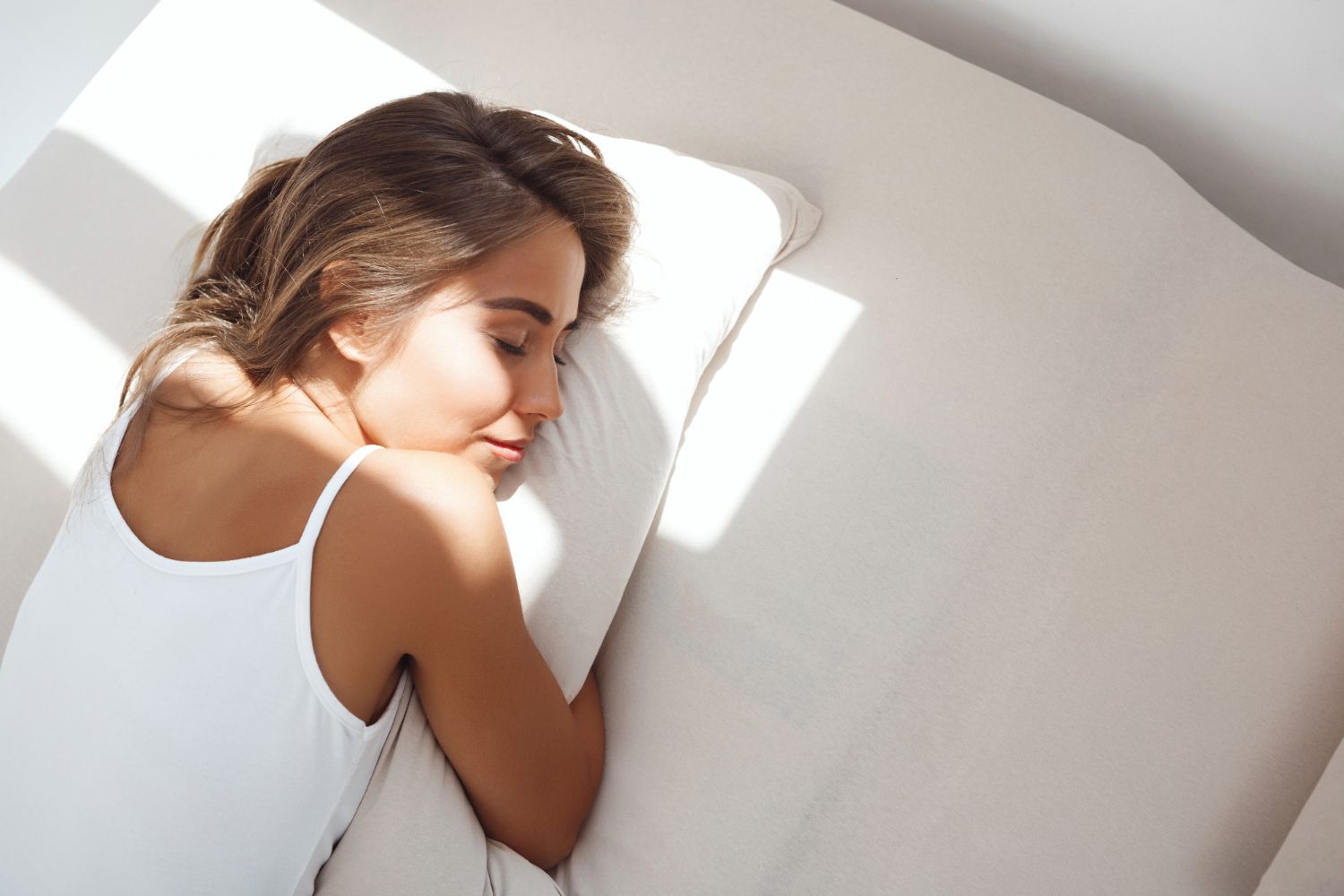
The indirect cause of sleeping difficulty in every countries is the increasing pressures created by the modern society.
These pressures come from work for adults, from studying for kids, from the urge to consuming excessive entertaining activities on electronic devices in the hours before sleep – to release the stress from daytime occupations.
These pressures make it impossible for our mind and body to rest with ease, when we are supposed to on a day by day basis.
Moreover, blue light from electronic devices is also another major factor to increase sleeping difficulty and sleeping disorders. This problem is worsened substantially due to the popular habit of using electronic devices for entertainment before sleep.
Blue light from electronic devices would throws the body’s circadian rhythm (more commonly known as “biological clock”) out of whack, by lower the melatonin hormone produced and reduce sleepiness. (4)
2. The harm of lacking good sleeps
Lacking quality sleeps daily (non-disrupted, in supposed hours, and at least 7 hrs for adults & 9 hrs for kids), our body is prone to dangerous diseases, such as**:**
- Diabetes (1)
- Increased blood pressure (1)
- Increase of stress & depression (1)
- Heart diseases (5)
- Obesity (6)
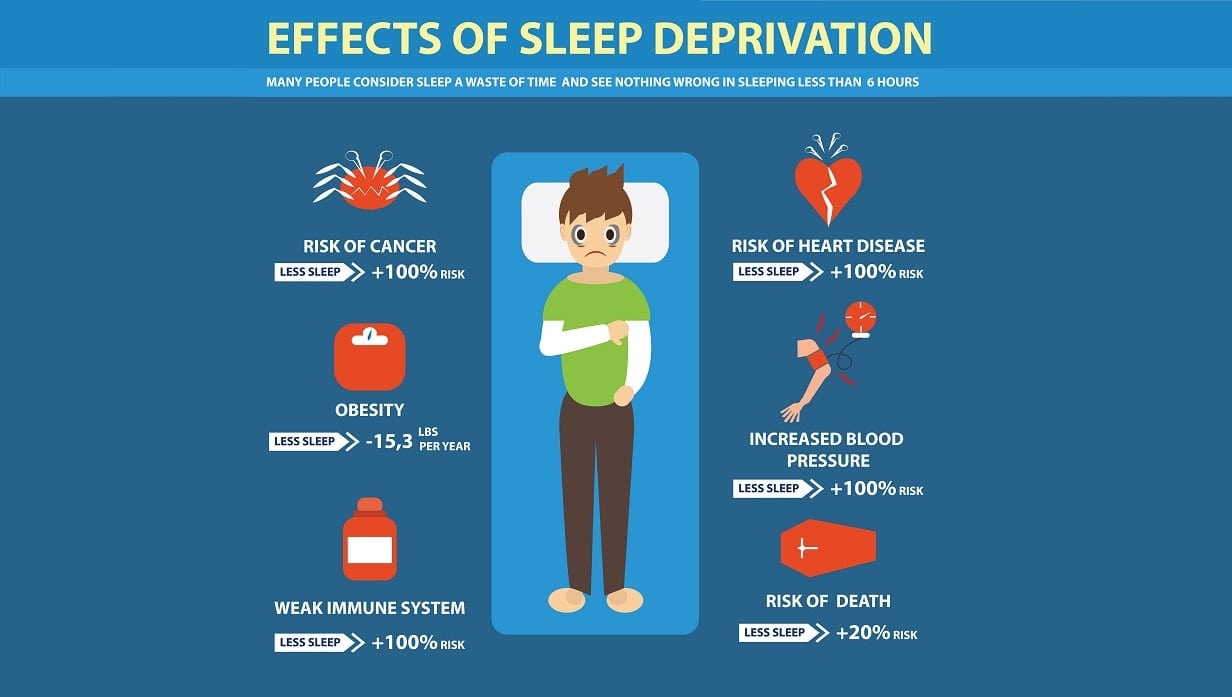
To children, lacking healthy sleeping habits mean decrease of cognitive abilities which worsens academic performance. Also, children’s mental and physical development will not grow optimally due to the lack of quality sleeps.
To adults, lacking quality sleeps results in decreased productivity. In working environments that require great caution (construction sites, manufacturing factories, etc), reduced mental capacity due to sleeping disorders may even cause occupational hazards.
3. Ways to improve quality of your sleeps
Here are effective, science-based ways to improve quality of your sleeps.
Healthy habits for good sleeps:
- Avoid TVs & electronic devices 2 hrs before sleeps to reduce exposure to blue light; (4)
- Go to bed and wake up by a consistent sleeping schedule daily, to avoid daytime sleepiness and sleeping difficulty in the supposed sleep time; (7) (8)
- Avoid daytime naps (if you have to, allow only 30 mins maximum naps) so that your circadian rhythm can trigger your sleepiness at 10-11pm. (9)
Preparations for good sleeps:
- Make sure your bedroom is tidy and comfy, and avoid as much as possible light & noise as these are two common factors causing sleeping difficulty; (10) (11)
- Spend some time for light Yoga exercises, stretches, or relax a bit by reading, listening to music, etc, to help your mind & body unwind;
- Keep the temperature as low as it suits you (below 20 Celsius degree recommended) so that you can rest easier.
Lifestyle tips for good sleeps:
- Exercise for 20-30 mins daily to help your body fall asleep easily (12); yet you are advised against exercising after 6pm which can cause pressure to body;
- Say no to heavy eating to avoid the reduction of sleepiness-causing hormones HGH & melatonin; (13)
- Stay clear of alcoholic (14) or caffeinated (15) drinks in the evening will help you to rest at ease. A glass or warm water or whole milk would be a wise, healthy substitution to avoid feeling hungry at night and also help you sleep better.
Reference:
- (1) | Institute of Medicine (US) Committee on Sleep Medicine and Research. (2006). Sleep Disorders and Sleep Deprivation: An Unmet Public Health Problem:
- (2) | Justin Varney. (2018). Is lack of sleep affecting your work?
https://ukhsa.blog.gov.uk/2018/01/30/is-lack-of-sleep-affecting-your-work/
- (3) | Ngô Đồng. (2019). Hơn 30% người dân ở Sài Gòn bị rối loạn giấc ngủ:
https://congan.com.vn/doi-song/suc-khoe/dieu-tri-roi-loan-giac-ngu_80683.html
- (4) | Harvard Health Publishing. (2020). Blue light has a dark side:
https://www.health.harvard.edu/staying-healthy/blue-light-has-a-dark-side
- (5) | Jessica R. Lunsford-Avery, Matthew M. Engelhard, Ann Marie Navar & Scott H. Kollins. (2019). Validation of the Sleep Regularity Index in Older Adults and Associations with Cardiometabolic Risk:
- (6) | Marie-Pierre St-Onge, Ari Shechter. (2013). Sleep disturbances, body fat distribution, food intake and/or energy expenditure: pathophysiological aspects:
- (7) | Hans P. A. Van Dongen, David F Dinges. (2003). Investigating the interaction between the homeostatic and circadian processes of sleep-wake regulation for the prediction of waking neuro-behavioural performance:
- (8) | Flavia Giannotti, Flavia Cortesi, Teresa Sebastiani, Salvatore Ottaviano. (2002). Circadian preference, sleep and daytime behaviour in adolescence:
- (9) | John A Groeger, June C. Y. Lo, Christopher G. Burns, Derk-Jan Dijk. (2011). Effects of sleep inertia after daytime naps vary with executive load and time of day:
- (10) | J. P. Libert, V. Bach, L. C. Johnson, J. Ehrhart, G. Wittersheim, D. Keller. (1991). Relative and combined effects of heat and noise exposure on sleep in humans:
- (11) | Kathryn A. Lee, Caryl L. Gay. (2011). Can modifications to the bedroom environment improve the sleep of new parents? Two randomized controlled trials:
- (12) | Giselle S. Passos, Dalva Poyares, Marcos G. Santana, Silvério A. Garbuio, Sergio Tufik, Marco Túlio Mello. (2010). Effect of acute physical exercise on patients with chronic primary insomnia:
- (13) | Kelly C. Allison, Jennifer D. Lundgren, John P. O’Reardon, Allan Geliebter, Marci E Gluck, Piergiuseppe Vinai, James E. Mitchell, Carlos H. Schenck, Michael J. Howell, Scott J. Crow, Scott Engel, Yael Latzer, Orna Tzischinsky, Mark W. Mahowald, Albert J. Stunkard. (2010). Proposed diagnostic criteria for night eating syndrome
- (14) | V. C. Taasan, A. J. Block, P. G. Boysen, J. W. Wynne. (1981). Alcohol increases sleep apnea and oxygen desaturation in asymptomatic men:
- (15) | Christopher Drake, Timothy Roehrs, John Shambroom, Thomas Roth. (2013). Caffeine effects on sleep taken 0, 3, or 6 hours before going to bed:
- (16) | Bùi Ngọc Phương Hòa. Melatonin: Công dụng, liều dùng, tác dụng phụ:
https://www.vinmec.com/vi/tin-tuc/thong-tin-suc-khoe/melatonin-cong-dung-lieu-dung-tac-dung-phu/
- (17) | Erica Hersh. (2020). 10 Healthy Sleep Hygiene Habits:
Featured post
-
05 Diet Plans That Are Good For Your Health
31/07/2022
-
Best Times to Sleep for Adults & Children
01/06/2022

